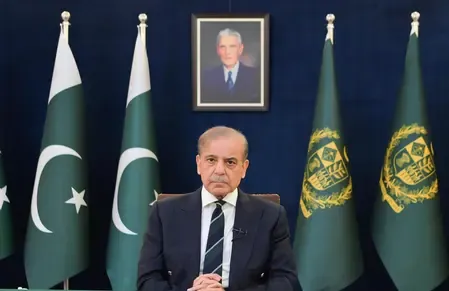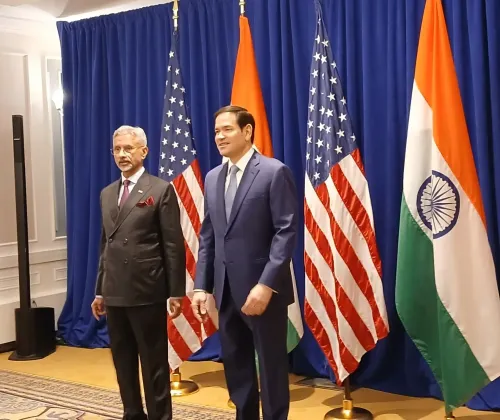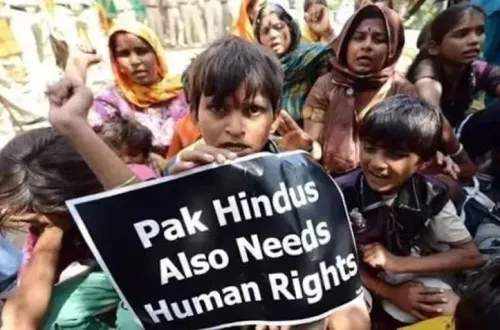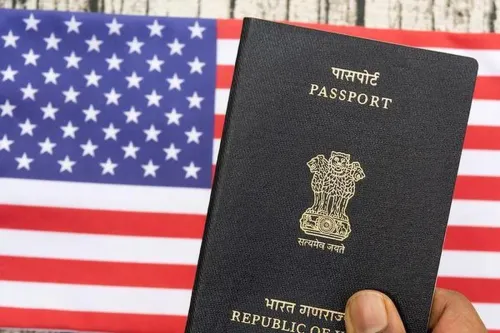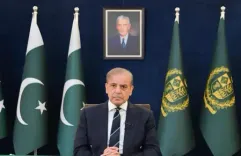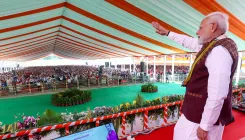Is There a Crisis of Kidnappings and Disappearances in Balochistan?
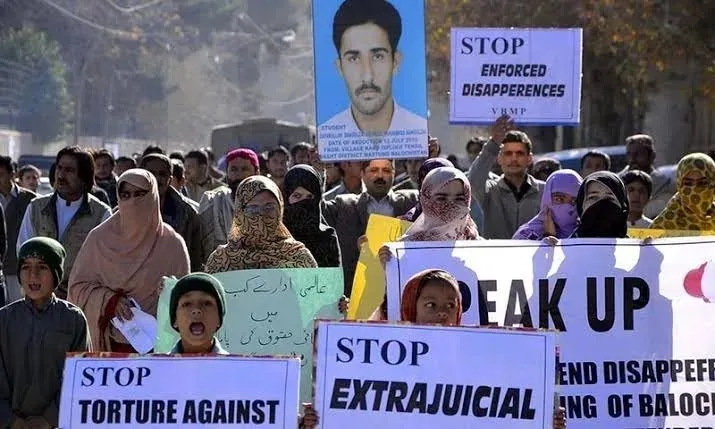
Synopsis
Key Takeaways
- Maulana Fazl-Ur-Rehman highlights the alarming rise in enforced disappearances in Balochistan.
- Families are mobilizing protests demanding the return of their loved ones.
- International advocate Reed Brody calls for accountability and oversight.
- The Baloch National Movement plays a crucial role in advocating for rights.
- Survivors' courage is pivotal in the fight for justice.
Islamabad, Sep 22 (NationPress) Pakistani politician Maulana Fazl-Ur-Rehman recently accused the nation's authorities of being complicit in kidnappings and enforced disappearances in Balochistan. His statements emerged against a backdrop of increasing incidents of enforced disappearances, prompting families to protest for the safe return of their missing loved ones.
In a widely-shared video, Rehman stated, “If you visit Balochistan, you will find a climate of insecurity—people are taken and vanished.”
American human rights attorney and researcher Reed Brody has also called for international attention to the severe issues of enforced disappearances, unlawful killings, and assaults on women activists by Pakistani authorities in Balochistan.
Brody made his remarks at the 7th Global Balochistan Conference in Geneva, coinciding with the 60th regular session of the UN Human Rights Council. The event, organized by the Baloch National Movement (BNM), attracted numerous political leaders, human rights advocates, and scholars.
“The people of Balochistan are not alone. The pursuit of truth and accountability may be arduous, but it is never without hope. We must demand international oversight,” Brody emphasized.
He insisted on the necessity for independent investigations into enforced disappearances, unlawful killings, and the targeting of female activists. “The international community must not turn a blind eye while fundamental rights—such as the right to express, protest, and mourn—are suppressed,” he warned.
Brody urged Pakistani authorities to release detained peaceful protesters, restore internet services in affected areas, and halt the unlawful use of force in Balochistan.
He appealed to the international community to amplify the voices of victims, call for accountability, and resist being blinded by geopolitical interests.
“To the survivors in Balochistan: your bravery is significant. History teaches us that while truth may be postponed, it can never be hidden,” Brody asserted.
Reflecting on his extensive work with survivors of some of history's most oppressive regimes—including Augusto Pinochet in Chile and Hissene Habre in Chad—Brody noted, “These were individuals who believed they could maintain power through intimidation and silence dissent through fear, evading accountability.”
“However, history ultimately caught up with them—not due to government actions, but because survivors chose to speak out. Their courage brought justice for themselves and future generations. That same spirit of bravery thrives today in Balochistan,” he concluded.

